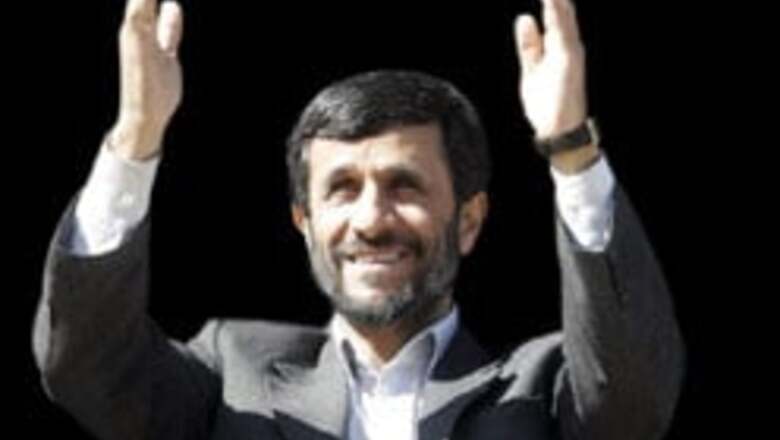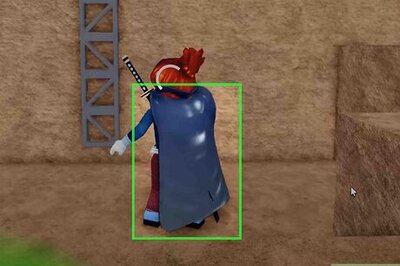
views
Tehran: Iran's president sent an unprecedented letter to US President George W Bush on Monday, but it was unclear whether its contents offered any practical solution to a stand-off over Tehran's nuclear programme.
Past Iranian public messages to the United States have been sharp rebukes, accusing Washington of bullying over Tehran's nuclear programme and of imperialistic intervention in Iraq.
Government spokesman Gholamhossein Elham said the letter from President Mahmoud Ahmadinejad broached the nuclear dispute but declined to say whether it mentioned the possibility of direct talks with the United States.
"In this letter, he has given an analysis of new ways of getting out of the current delicate situation in the world," he told a weekly news conference.
Iran has been referred to the UN Security Council over fears it is building nuclear arms, a charge Iran denies.
Washington says it would prefer a diplomatic solution to the crisis but that sanctions and military strikes are options.
Ahmadinejad's letter is the first publicly announced personal communication from an Iranian president to his US counterpart since the 1979 Islamic revolution.
But its significance hinges on whether Iran changes chastising rhetoric which Washington habitually spurns.
Analysts thought there was little chance that Ahmadinejad would suggest that Iran could stop making nuclear fuel, the move which the United Nations has demanded and that Western diplomats see as the only way to defuse the atomic crisis.
On the contrary, they said Ahmadinejad was most likely to address the United States from a position of strength.
After announcing that it had enriched uranium, Iran has increasingly styled itself as a regional heavyweight.
"It is a sort of announcement or approach from a position of power, that Iran is a global power to be reckoned with," Tehran-based political analyst Mahmoud Alinejad said.
Following Khomeini
Ali Ansari, a specialist in Iran at Scotland's St Andrew's University, said the letter could be Ahmadinejad's attempt to follow in the footsteps of revolutionary leader Ayatollah Ruhollah Khomeini.
"I suspect he may be trying to emulate Khomeini's letter to Mikhail Gorbachev. He gave him a lesson in international politics and told him if he carried on the Soviet Union would collapse. Khomeini told him to embrace Islam," he said.
The United States and Iran severed diplomatic ties in 1980, after radical students stormed the US embassy in Tehran and seized 52 Americans.
They were held hostage for 444 days.
Iranian and US officials met secretly many times in the 1980s, famously during the "Iran Contra" scandal when Washington sold Iran arms for help freeing US hostages in Lebanon.
President Akbar Hashemi Rafsanjani made an open overture to the United States in 1995, offering US firm Conoco a $1 billion natural gas deal. President Bill Clinton rebuffed him.
US officials often cite Iran's implacable hostility towards Israel as a key obstacle to restoring ties.
More than any of his recent predecessors, Ahmadinejad has raised hackles in the United States, by asserting that Israel should be "wiped off the map".
Bush told Germany's Bild am Sonntag newspaper such comments should be seen as a serious threat to Israel and other countries.
Israel lies within range of Iranian ballistic missiles.
Ahmadinejad also said the Holocaust, in which six million Jews were killed by the Nazis, was a myth.
US and Iranian officials have said they are willing to hold talks focusing solely on co-operation to end the bloodshed in Iraq.
But Ahmadinejad has said such talks are not needed.


















Comments
0 comment